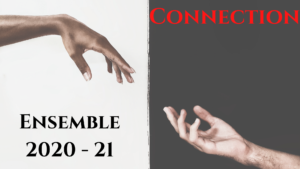There is a perceived notion that students studying in International schools are primarily influenced by the systems of the western world. This perception is rather broad and lacks meaning. International Baccalaureate (IB), taught in an International School also faces this scrutiny. In an IB curriculum, one of the many things students learn is to approach life with a global outlook. Let’s look at the other ways how an IB curriculum helps.
(1) International-Mindedness
International-mindedness is a view of the world in which people see themselves connected to the global community and assume a sense of responsibility to its members. It is an awareness of the inter-relatedness of all nations and peoples and a recognition of the complexity of these relationships. Internationally-minded people appreciate and value the diversity of cultures in the world and make an effort to learn more about them ( Source: www.ibo.org)
(2) Appreciation of diversity
IB Students learn to value the diversity of cultures. By learning each others’ cultural aspects, respecting independent beliefs, and by collaborating through individual differences, an IB student develops tolerance. These qualities help understand different perspectives and shape the personality of an IB student as S/he prepares to live as a global citizen.
An IB education aims to transform students and schools as they learn, through dynamic cycles of inquiry, action, and reflection. Teachers enable and support students as they develop the approaches to learning they need – for academic and personal success. IB programmes aim to help students explore and construct their own personal and cultural identities. (Source: www.ibo.org/benefits)
(3) Responsibility as Global Citizens
An IB curriculum encourages taking up every issue that has global relevance and affects humans and the environment they live in. The IB curriculum inculcates a sense of global citizenship, encourages students to think beyond borders and offer solutions that encompass humanity as a whole. Thus IB creates global citizens.
(4) Glocal (Global and Local) Approach of IB students
Set to a specific City/ region, a School naturally imbibes the local flavour. An IB curriculum supports and creates opportunities to localise global knowledge ( Glocal in short ). Students learn how to tackle global issues with locally available resources. For instance, take water pollution which is a global issue. Our IB students are taken to local water bodies to understand the impact of pollution and how it affects the environment. “Seeing is believing “ so, when our students witness this waste accumulated at the water bodies, they become aware of the magnitude of the global issue . Next, they understand the process of waste disposal and become aware of how local bodies work to dispose of waste. They analyse the success and failures of the local system and develop a perspective of how things can be better. In the process, they also try and understand biodiversity.
Ms Priya Dixit, Head of School, AAIS says “The purpose of education is to provide a transformational experience, to understand better and explore the world we live in. International-mindedness demands that an educational system practice its ethics. An education system that practices its ethics, exhibits integrity and builds credibility that it sets to achieve. This process, while holding its teaching and curriculum at its core, aims to provide continual learning for all, at all times.
At AAIS, we believe we are what we continuously practise. International-mindedness is a manifestation of who we are and what we do. We are that by being tolerant, open-minded, just, and balanced. We do that by striving to appreciate diversity, developing sensitivity, collaboration, co-operation, and help build a community “.




